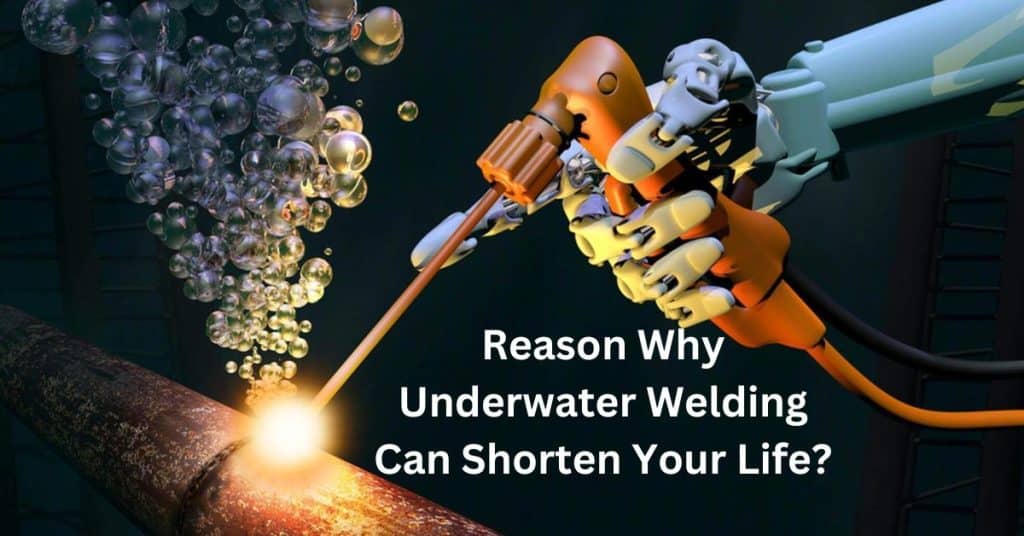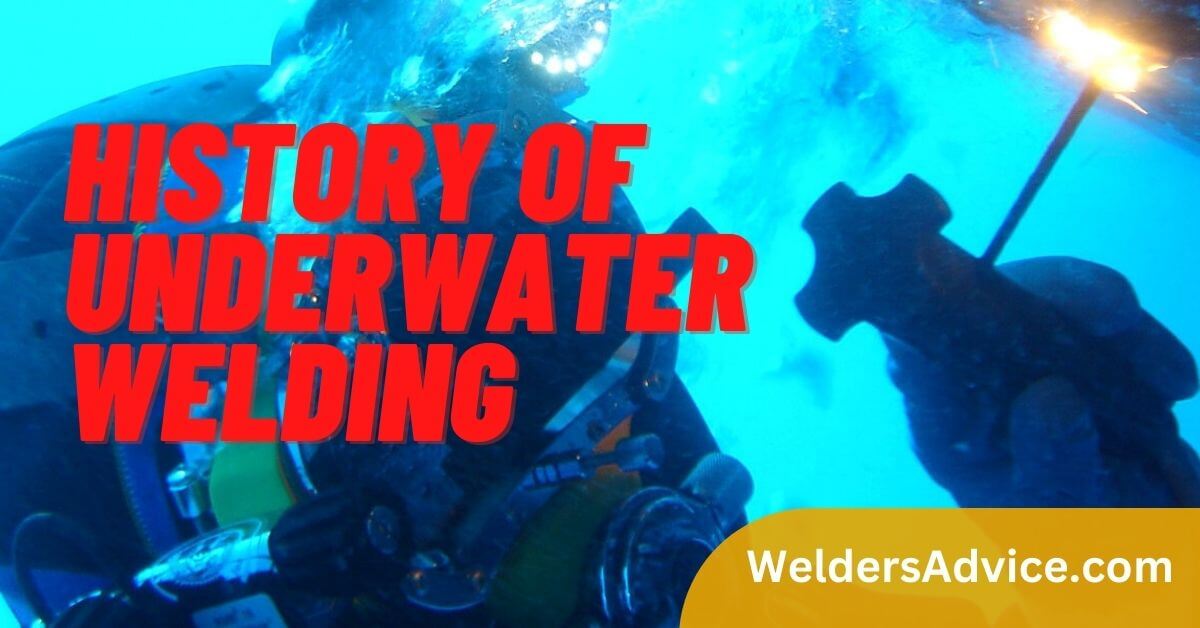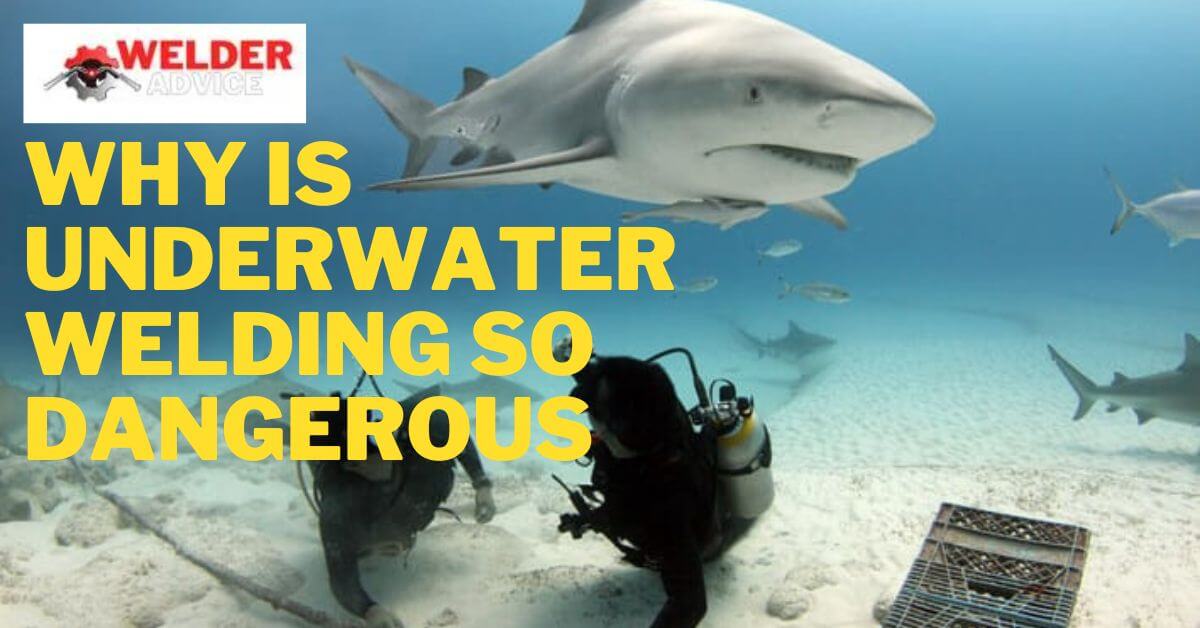The high level of exposure to welding fumes, including toxins like arsenic and cadmium, can lead to serious health problems and shortened life expectancy. This is a story about an underwater welder who was diagnosed with a terminal illness. However, he decided to spend his remaining time doing what he loved – welding. He continued to weld underwater, even though it shortened his life. He said that he didn’t regret it, because it was what he loved to do. Let’s find out more about Why Does Underwater Welding Shorten Your Life.
What Is The Main Reason Why Underwater Welding Can Shorten Your Life?

The main reason why underwater welding can shorten your life is because it is a very dangerous job.
We all know that welding Is a dangerous profession. The dangers of welding are well documented and understood. But what about underwater welding? Do you really think it is as dangerous as it seems?
The short answer is yes. Underwater welding can be a very dangerous job. In fact, it has been known to shorten the life of welders.
The main reason why underwater welding can be so dangerous is because of the fumes. When welding underwater, the fumes from the welding process can become trapped under the water. This can lead to the welders inhaling the fumes, which can be very dangerous.
Inhaling the fumes from welding can cause a number of health problems, including cancer. This is why underwater welders have a much higher rate of cancer than the general population.
So, if you’re thinking about becoming an underwater welder, be aware of the risks. It’s a dangerous job that can shorten your life.
Also Read: Chicago Electric Flux 125 Welder Review
What Are The Health Risks Associated With Underwater Welding?
There are a few health risks associated with underwater welding, such as electric shock, hypothermia, and lung damage from inhaling welding fumes.
Welding is a process that joins materials, usually metals or thermoplastics, by using high heat to melt the parts together and allow them to cool, forming a permanent bond. Underwater welding is a type of welding that is performed underwater. It is a highly specialized form of welding that is used in a variety of industries, including the construction, oil and gas, and shipbuilding industries.
While underwater welding can be a very dangerous job, there are a number of health risks associated with it. These risks include:
• Exposure to toxic fumes: When welding, there is a risk of exposure to toxic fumes. These fumes can contain harmful chemicals, such as lead, cadmium, and arsenic.
• Burns: Welding can cause burns to the skin. These burns can be very serious, depending on the depth of the burn.
• Eye damage: The bright light from the welding arc can damage the eyes. welding glasses or a welding helmet with a face shield should be worn to protect the eyes.
• Electric shock: There is a risk of electric shock when welding. This shock can be fatal.
• Drowning: There is also a risk of drowning when welding underwater.
Despite the risks, underwater welding can be a safe and rewarding career. With the proper safety precautions in place, the risks can be minimized.
What Are The Dangers Of Underwater Welding?
But while welding can be a safe and effective way to join metals, it also comes with some risks. Here are some of the dangers of underwater welding:
Electric Shock
Welding involves working with electricity, which means there’s a risk of electric shock. This is especially dangerous in water, as water is an excellent conductor of electricity.
Fire and Explosion
Welding can create sparks that can ignite flammable materials nearby. This is a risk in any welding environment, but it’s especially dangerous in an underwater welding environment where there may be flammable gases present.
Chemical Exposure
Welding can release harmful chemicals into the air, including fumes and smoke. These chemicals can be harmful to welders and anyone else nearby.
UV radiation
Welding arcs give off UV radiation, which can damage the eyes and skin. This is a risk in any welding environment, but it’s especially dangerous in an underwater welding environment where there’s a risk of reflections off the water.
Noise
Welding can be loud, which can damage the hearing of welders and anyone else nearby. This is a risk in any welding environment, but it’s especially dangerous in an underwater welding environment where the noise can be amplified.
Heat Stress
Welding can generate a lot of heat, which can lead to heat stress and dehydration. This is a risk in any welding environment, but it’s especially dangerous in an underwater welding environment where the heat can be amplified.
Fatigue
Welding can be physically demanding, and it can lead to fatigue. This is a risk in any welding environment, but it’s especially dangerous in an underwater welding environment where the welders may be working in difficult and strenuous positions.
Drowning
One of the biggest risks of underwater welding is drowning. This is a risk in any underwater environment, but it’s especially dangerous in an underwater welding environment where the welders may be working in difficult and strenuous positions.
Underwater welding is a dangerous job, but it’s an important one. If you’re considering a career in underwater welding, make sure you understand the risks and take the necessary precautions to stay safe.
FAQs
What Are The Risks Of Being An Underwater Welder?
The risks of being an underwater welder are drowning, getting the bends, and getting an electric shock.
How Does Welding Underwater Affect The Body?
The main concern with welding underwater is the possibility of electric shock. If the welder is not properly grounded, he or she could receive a shock from the electrical current. In addition, welding underwater can produce harmful fumes that the welder could inhale.
Final Thoughts
There is no clear consensus on why underwater welding might shorten your life, but there are some possible explanations. One theory is that the constant exposure to welding fumes and other toxins can damage your lungs and other organs over time. Another possibility is that the high levels of stress associated with underwater welding can take a toll on your body, leading to premature aging and a shorter lifespan. Whatever the reason, it’s clear that underwater welding is a dangerous occupation that comes with a significant risk of health problems.
If you still have any questions about why underwater welding can shorten your life, please feel free to leave a comment below.





